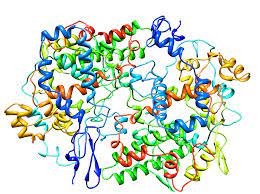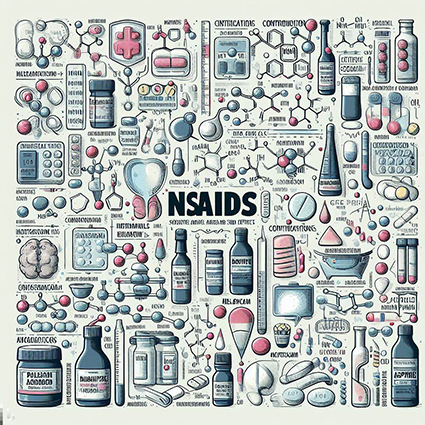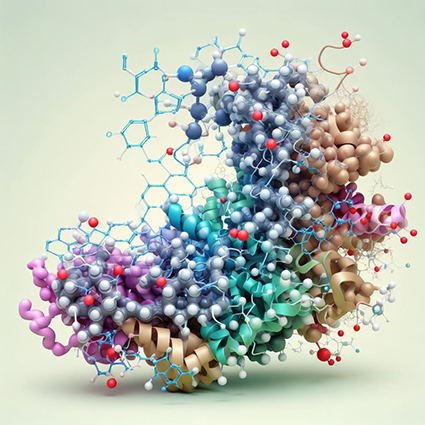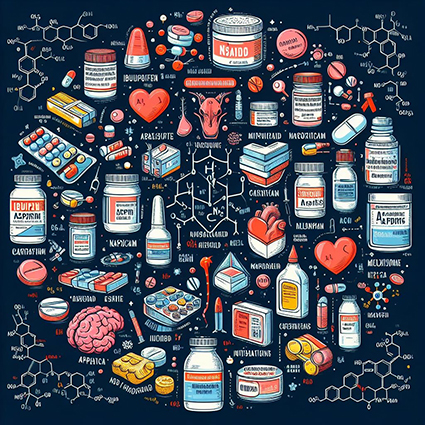
Nonsteroidal anti-inflammatory drugs, or NSAIDs, are a group of medications that can help reduce pain, fever, and inflammation. They are commonly used to treat conditions such as headaches, menstrual cramps, arthritis, sprains, and toothaches. However, NSAIDs also have some risks and side effects that users should be aware of. This article will provide an overview of what NSAIDs are, how they work, what are the different types, and what are the benefits and drawbacks of using them.

What are NSAIDs and how do they work?
NSAIDs are drugs that block the activity of certain enzymes called cyclooxygenase (COX) that are involved in the production of prostaglandins. Prostaglandins are chemicals that have various effects in the body, such as causing inflammation, pain, fever, and blood clotting. By inhibiting COX enzymes, NSAIDs reduce the amount of prostaglandins and thus relieve the symptoms they cause.

There are two main types of COX enzymes: COX-1 and COX-2. COX-1 is responsible for producing prostaglandins that protect the lining of the stomach and intestines, regulate blood flow to the kidneys, and activate platelets for blood clotting. COX-2 is mainly induced by infection or injury and produces prostaglandins that cause inflammation, pain, and fever.

Different NSAIDs have different preferences for inhibiting COX-1 or COX-2. Some NSAIDs are non-selective, meaning they inhibit both types of COX enzymes to a similar extent. Examples of non-selective NSAIDs include aspirin, ibuprofen, naproxen, and diclofenac. Some NSAIDs are selective, meaning they preferentially inhibit COX-2 over COX-1. Examples of selective NSAIDs include celecoxib, meloxicam, and etoricoxib.

What are the benefits and drawbacks of using NSAIDs?
NSAIDs are effective and widely available drugs for treating mild to moderate pain and inflammation. They can also reduce fever and prevent blood clots in some cases. NSAIDs are often the first-line treatment for conditions such as osteoarthritis, rheumatoid arthritis, gout, menstrual pain, and migraine. NSAIDs can also be used in combination with other drugs, such as opioids, for more severe pain.

However, NSAIDs also have some potential risks and side effects that users should be aware of. The most common side effects of NSAIDs are gastrointestinal, such as nausea, vomiting, diarrhea, ulcers, and bleeding. These side effects are more likely to occur with non-selective NSAIDs, higher doses, longer duration of use, and in people who have a history of peptic ulcer disease, are elderly, or take other drugs that affect the stomach, such as steroids or anticoagulants. Selective NSAIDs have less gastrointestinal side effects, but they have a higher risk of cardiovascular side effects, such as increased blood pressure, heart attack, and stroke. These side effects are more likely to occur in people who have a history of cardiovascular disease, are diabetic, smoke, or have high cholesterol. NSAIDs can also affect the kidneys and cause fluid retention, edema, and kidney failure in some cases. These side effects are more likely to occur in people who have kidney disease, are dehydrated, or take other drugs that affect the kidneys, such as diuretics or ACE inhibitors.

Therefore, NSAIDs should be used with caution and under medical supervision, especially for people who have risk factors for gastrointestinal or cardiovascular complications, or who have kidney problems. Users should also follow the dosage and duration recommendations for each NSAID, and avoid taking more than one NSAID at a time, as this can increase the risk of side effects. Users should also inform their doctors about any other medications or supplements they are taking, as NSAIDs can interact with some of them and cause adverse effects. Users should also report any signs of side effects, such as abdominal pain, black stools, chest pain, shortness of breath, swelling, or decreased urine output, to their doctors as soon as possible.

Conclusion
NSAIDs are a group of drugs that can help reduce pain, fever, and inflammation. They are commonly used to treat various conditions, such as arthritis, menstrual pain, and migraine. However, NSAIDs also have some risks and side effects that users should be aware of, such as gastrointestinal ulcers and bleeding, cardiovascular events, and kidney damage. Users should use NSAIDs with caution and under medical supervision, and follow the dosage and duration recommendations for each NSAID. Users should also inform their doctors about any other medications or supplements they are taking, and report any signs of side effects to their doctors as soon as possible.




